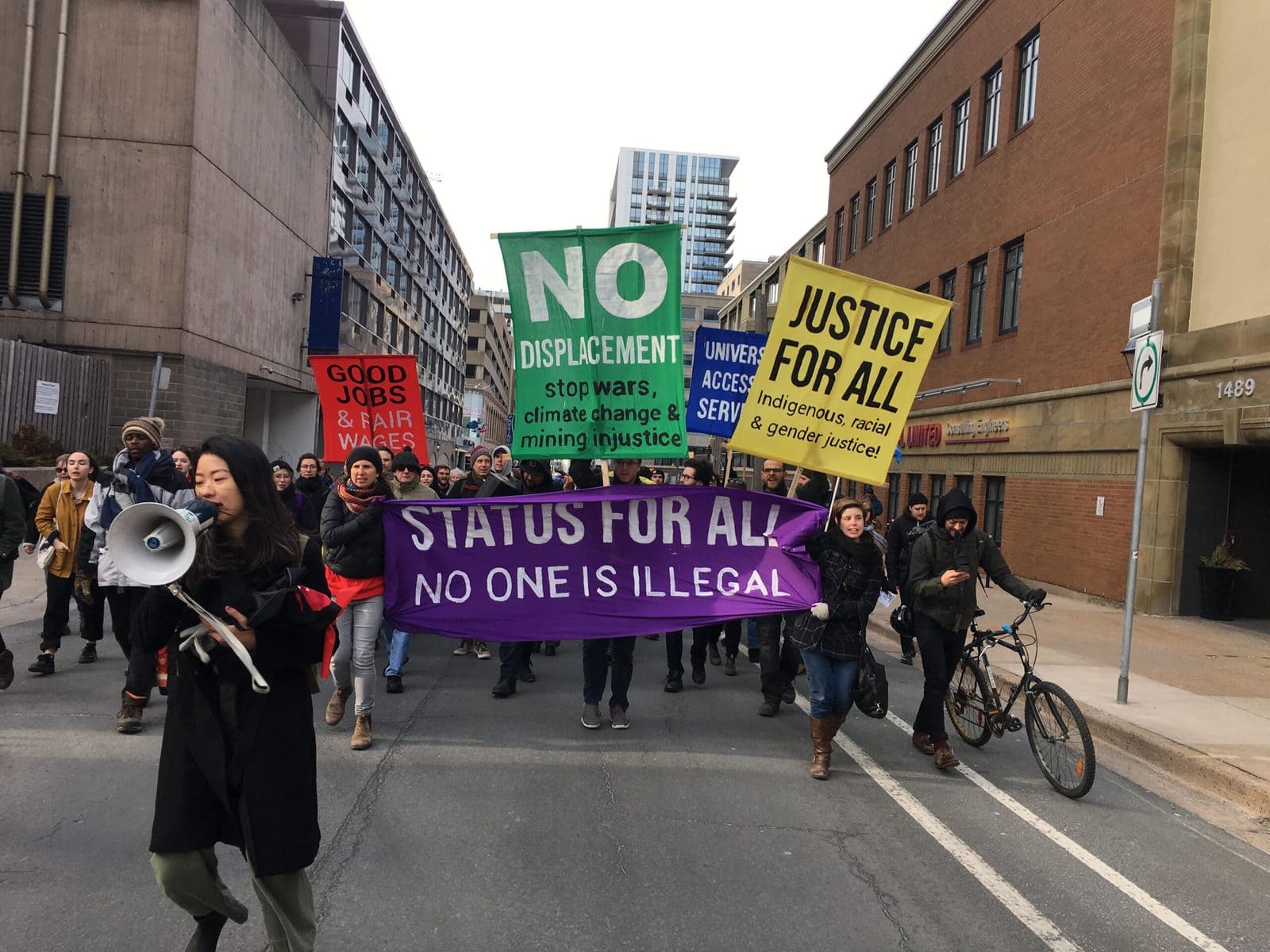
KJIPUKTUK (Halifax) – Vaccination of temporary foreign workers will be prioritized in the province’s vaccination roll out, recognizing that their collective living conditions expose them to increased risks, chief medical officer of health Dr. Robert Strang announced earlier this month.
However, local organizations that advocate for migrants are worried that undocumented residents will miss out on vaccination in Nova Scotia.
“We have heard that the vaccine roll out is going to be done through MSI. And this would exclude undocumented people, and others who don’t have access to MSI, people who might fall through the cracks as a result of this,” says Stacey Gomez, a spokesperson for No One Is Illegal Halifax / Kjipuktuk.
“We are advocating for alternate ways for people to access the vaccine and for the government to do targeted outreach. But what would take care of this is for all people in the province to have access to MSI, and that’s something that we’re continuing to call for, Gomez tells the Nova Scotia Advocate.
The bottom line for Gomez remains that migrants should all be granted status.
“Health care is a human right, and so is education. We know that when people don’t have access to immigration status, that really limits their ability to access health care, education, to be able to speak out about their rights without fear of being deported. So we continue to call for full and permanent immigration status for all,” says Gomez.
While the group is pleased that temporary foreign workers have been among the groups prioritized for vaccination in Nova Scotia, it cautions that coercion should not be part of that process.
“Migrant workers don’t enjoy the rights Canadian workers take for granted. We don’t want people to lose their jobs or be sent back to their country of origin if they exercise their right to say no to the vaccine,” Gomez says.
No One Is Illegal Halifax/Kjipuktuk is one of the signatories on an open letter about these issues, sent by the Migrant Rights Network to Prime Minister Justin Trudeau and provincial and territorial leaders.
Other Nova Scotia groups signing the open letter include Solidarity Halifax, Atlantic Region Association of Immigrant Serving Agencies, the Halifax Refugee Clinic, Sisters of St. Martha, the South House Sexual and Gender Resource Centre, and the Women’s Health Interest Group.
Vaccination is a basic human right
Lily, an undocumented worker at a long term care centre in Toronto is one of the people who stands to miss out on vaccination.
“The residents and staff have received their vaccinations, but I wasn’t able to get them as I do not have an Ontario health card. I am on the front lines every day, just like everyone else who lives and works in this home. But while they are not better protected from the virus spread, I am not,” she said on Wednesday at a virtual press conference in support of the open letter.
Lily came to Canada in 2014 and became undocumented last year through no fault of her own.
“What has become the norm here in our adopted country Canada is that we are treated with disrespect and unconcern. Canada’s elderly population continues to grow and health care workers are needed more than ever through this pandemic. Though we contribute to the Canadian society by being on the frontlines, the immigration system continues to put up more and more barriers to people like me, who could make such a positive impact in this country,” Lily said.
“Undocumented workers are already denied access to healthcare, housing, social services and legal rights, now we are being denied COVID vaccinations. COVID-19 does not discriminate against culture, language, place of birth, religious beliefs or social status. The vaccine should be a basic human right for all who live here,” she said.
Concerns about vaccination must be addressed
The effort to vaccinate migrant workers and undocumented individuals should allow them to make an informed decision, Gomez says.
“It’s good that the province has recognised that migrant workers should be prioritised in the vaccine rollout. However, this must be accompanied by educational materials in the language of migrants that are culturally relevant, she says.
“There are very legitimate reasons for people to have questions and concerns. These concerns exist because of earlier unethical treatment of racialized communities by the medical establishment. Those need to be addressed and there needs to be a targeted outreach plan to reach migrant communities, so that we ensure that no one is left behind in this vaccine rollout because our collective health, and the health of each person is important.”
See also: Migrant workers’ rights still on backburner in Nova Scotia
Check out our new community calendar!
With a special thanks to our generous donors who make publication of the Nova Scotia Advocate possible.
Subscribe to the Nova Scotia Advocate weekly digest and never miss an article again. It’s free!



